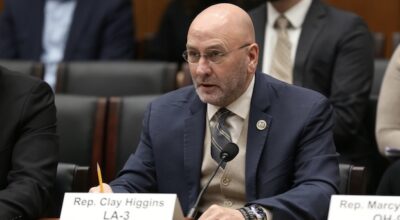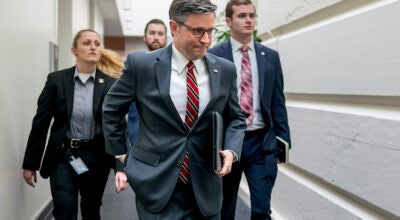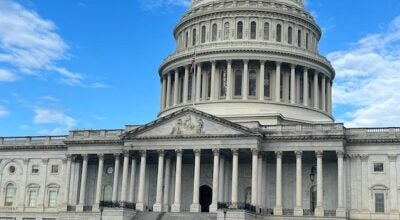Venezuela VP: contacts with US diplomats distorted
Published 4:49 pm Thursday, January 3, 2013
CARACAS, Venezuela (AP) — Venezuela’s vice president on Thursday suggested that reports about recent contacts between U.S. and Venezuelan diplomats were distorted in implying the conversations were initial efforts toward improving relations if President Hugo Chavez dies. He said Chavez authorized the conversations.
Vice President Nicolas Maduro spoke on television upon his return from Cuba, where he and other officials met with the ailing president more than three weeks after he underwent cancer surgery.
“In these days, we’ve seen how there have been attempts to distort an event that was simply sought to be carried out with the authorization of the president” in late November and early December, Maduro said. “And it has to do with the relationship with the government of the United States.”
“Some articles have come out that have tried to manipulate a group of elements,” Maduro said, without giving details.
Some recent news stories have raised questions about whether contacts between U.S. and Venezuelan diplomats could potentially lead to an improvement in long-strained relations if Chavez’s health continued to worsen.
“We know that all of these manipulations are being handled from the United States. They believe their time has come, and they’ve entered into a sort of mad hour, (an) offensive by the far-right here and internationally,” Maduro said. “Well, here is our nation planted very firmly, very clear.”
Maduro spoke a day after a U.S. government official confirmed that American and Venezuelan diplomats recently held high-level conversations aimed at improving relations. The U.S. official spoke to The Associated Press on condition of anonymity because he wasn’t authorized to speak publicly about the matter.
The official confirmed reports that Roberta Jacobson, assistant secretary of state for Western Hemisphere affairs, spoke by telephone with Maduro in November and discussed ways of improving relations. He also confirmed that U.S. diplomat Kevin Whitaker had a subsequent conversation with Roy Chaderton, Venezuela’s ambassador to the Organization of American States.
Maduro did not refer specifically to any particular contacts between diplomats.
U.S. State Department spokeswoman Victoria Nuland said earlier Thursday that the U.S. government is seeking a more productive relationship with Venezuela and is open to dialogue.
“Obviously we talk to Venezuelans from across the political spectrum, as we do with countries around the world. But any political transition that takes place in Venezuela has to be the product of decisions that are made by Venezuelans,” Nuland told reporters in Washington.
“We do not believe that there is a made-in-America solution for Venezuela’s transition,” Nuland added. “That is the message that we are giving to Venezuelans of all stripes, that we want to see any transition be democratic, be constitutional, be open, be transparent, be legal within Venezuela, and that it has to be decided by Venezuelans.”
Venezuela’s opposition has demanded more details about Chavez’s condition. The president has not spoken publicly since his Dec. 11 operation, and his government has recently described the president’s condition as “delicate” after he suffered complications due to a respiratory infection.
Nuland said that American officials have no way to evaluate what is being said about Chavez’s condition, “but we have seen concern within Venezuela that the government’s not being transparent.”
Chavez has had a rocky relationship with Washington for years, though the United States remains the top buyer of oil from Venezuela.
The U.S. Embassy in Caracas has been without an ambassador since July 2010. Chavez rejected the U.S. nominee for ambassador, accusing him of making disrespectful remarks about Venezuela’s government. That led Washington to revoke the visa of the Venezuelan ambassador.
U.S. officials have for years criticized Venezuela’s efforts against drug trafficking as inadequate, and have expressed hope of greater cooperation. Chavez has accused the U.S. government of manipulating the drug issue for political purposes to discredit his government.
Venezuela’s President Hugo Chavez





